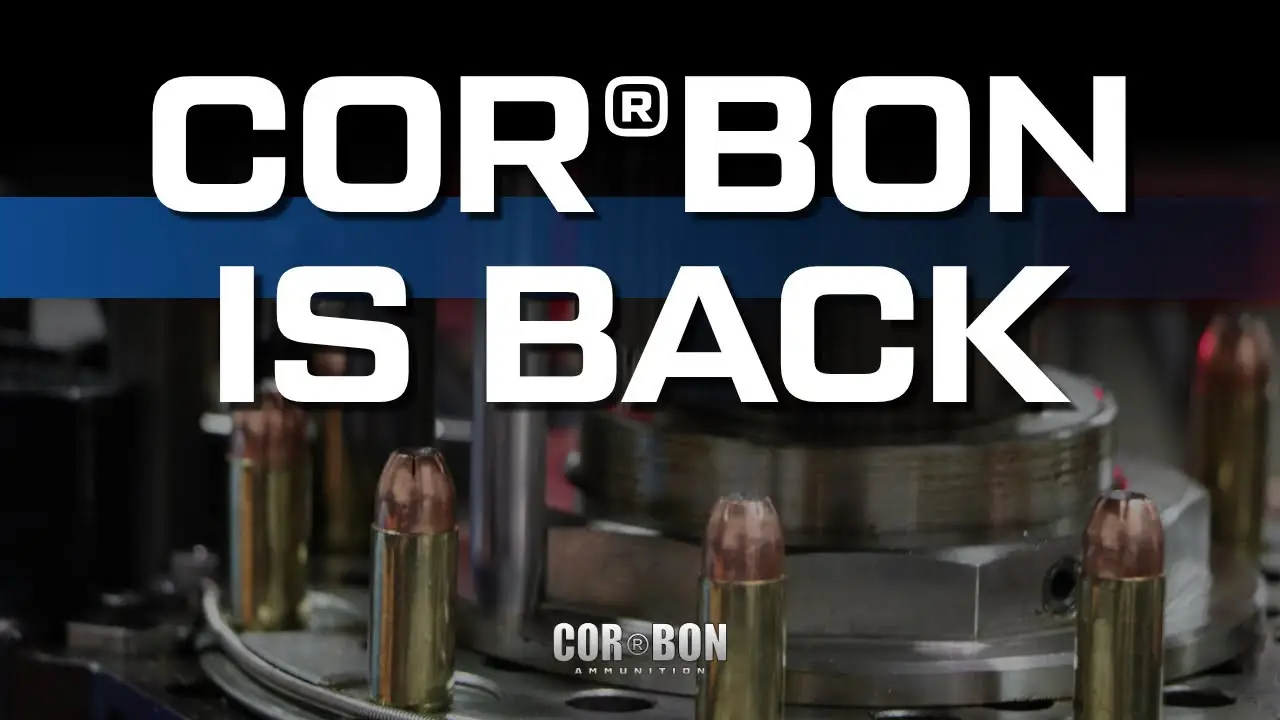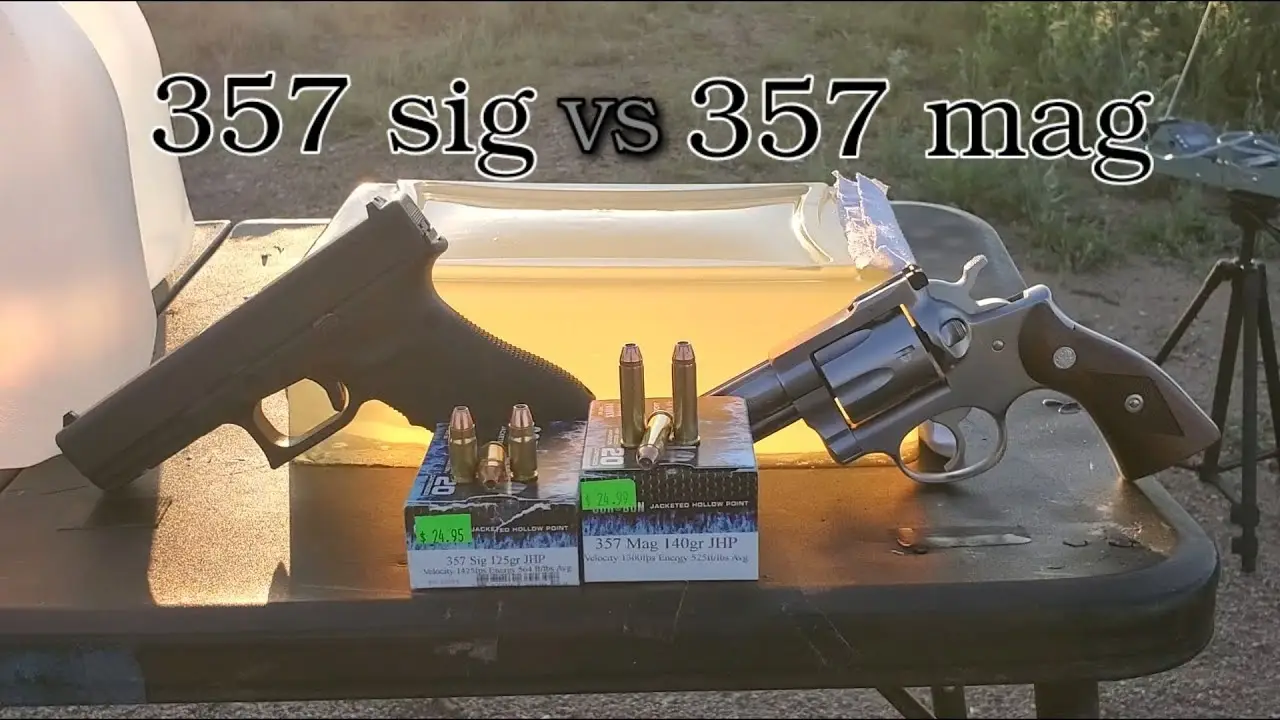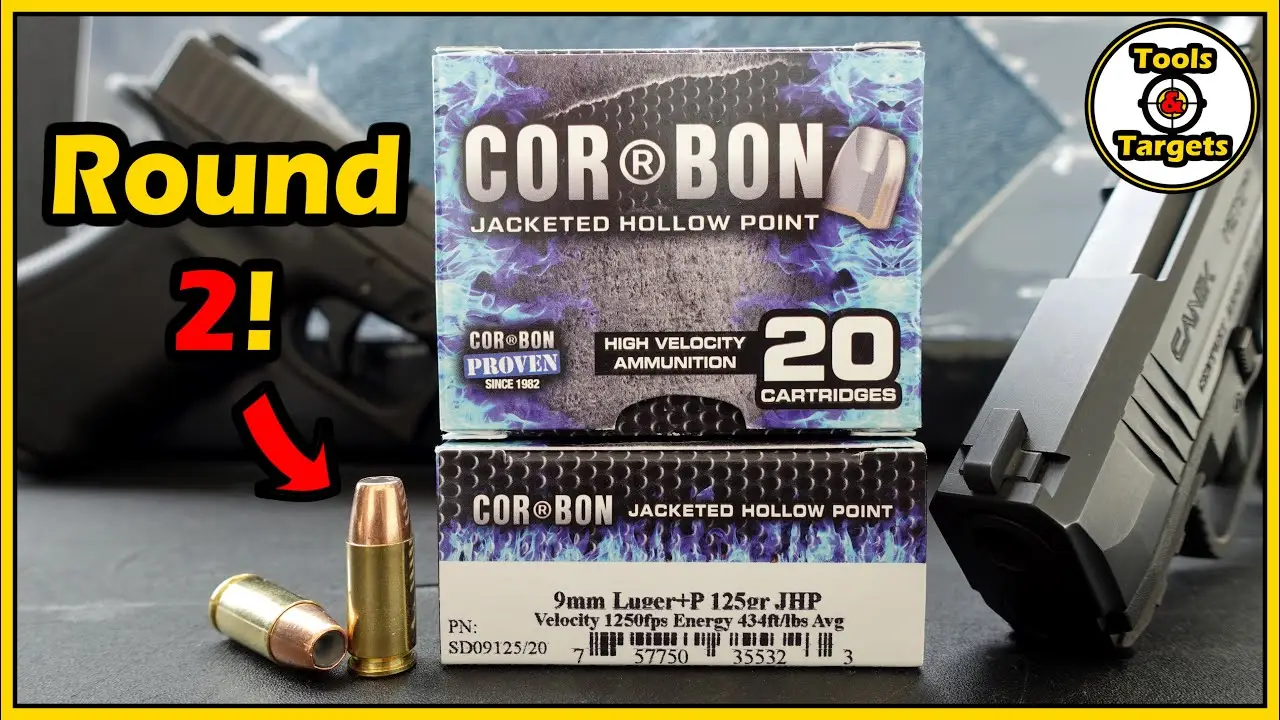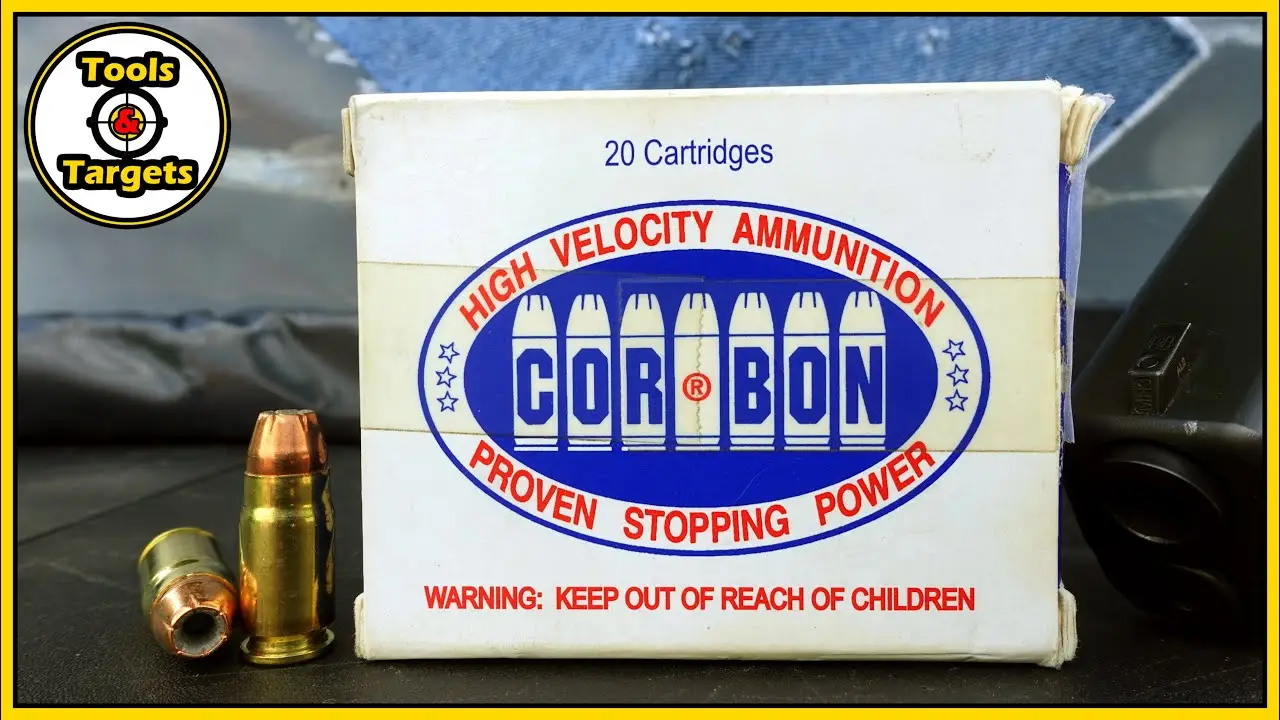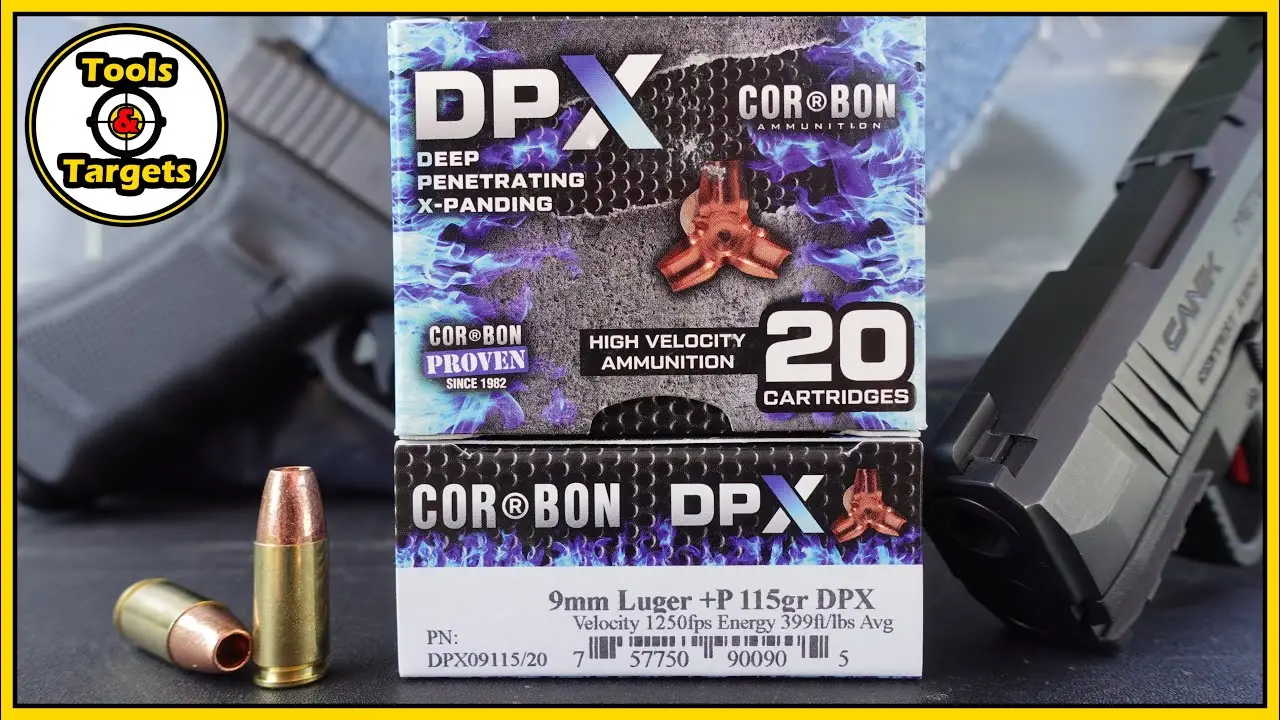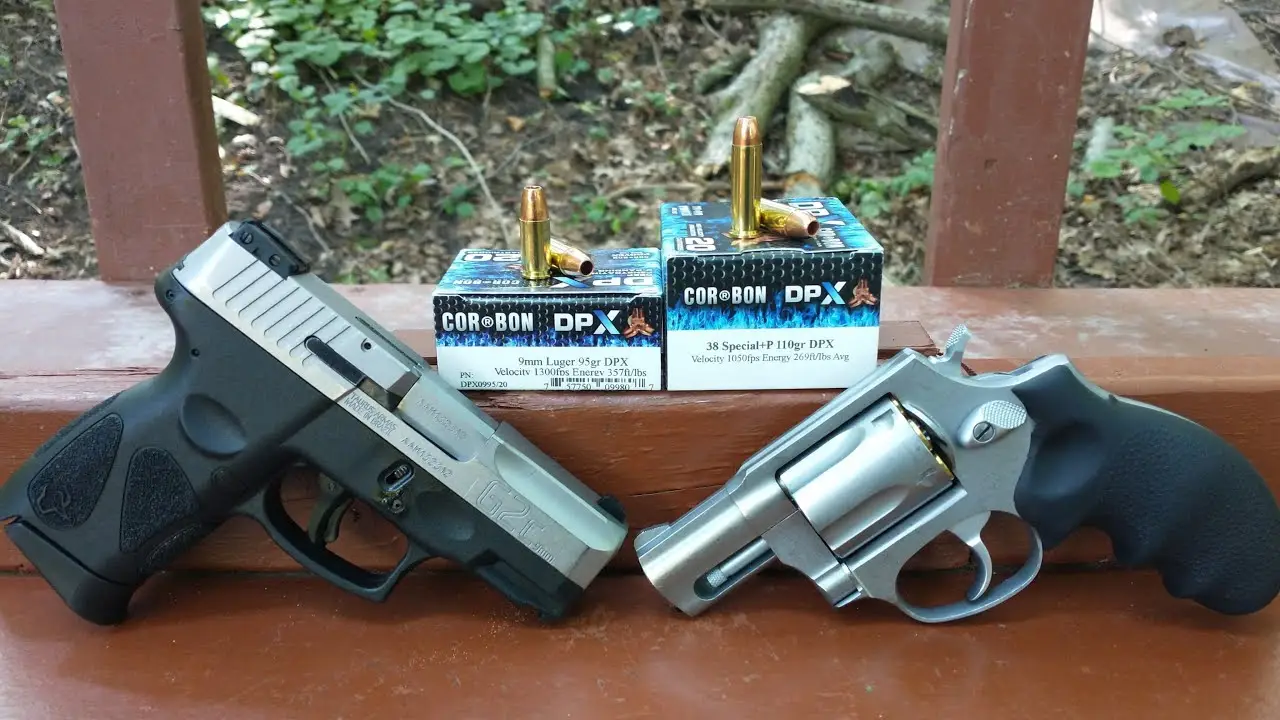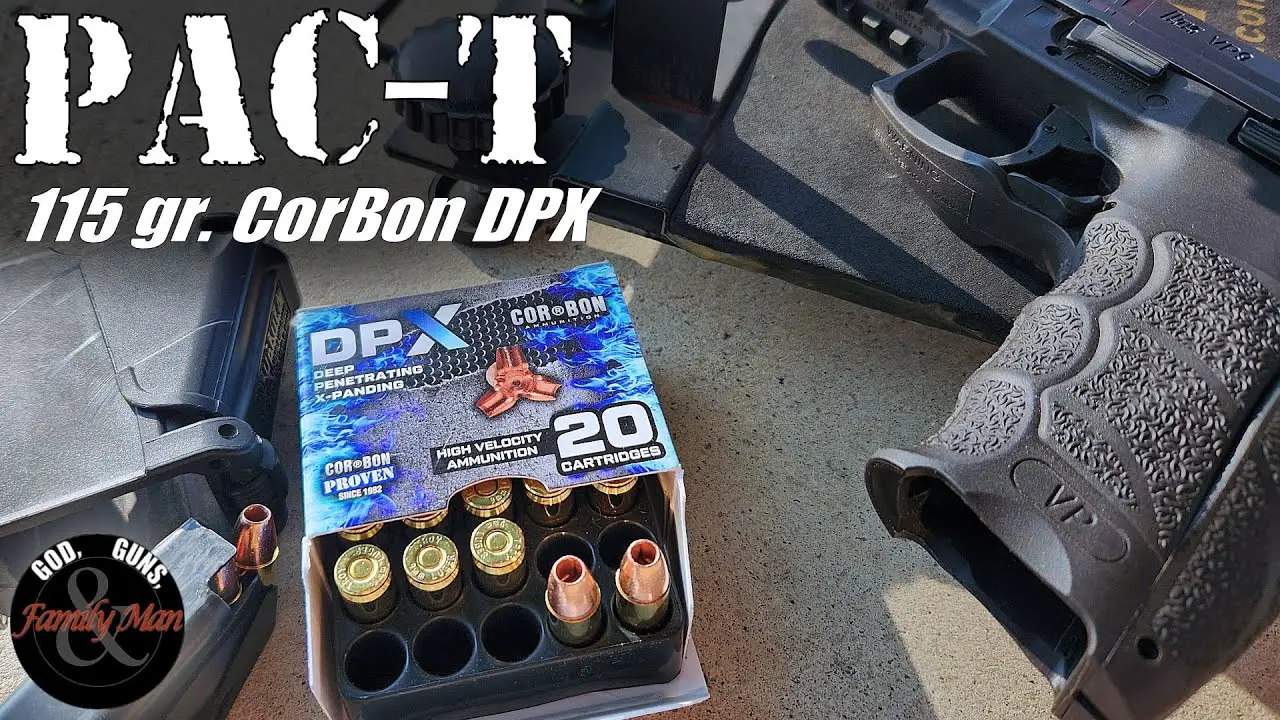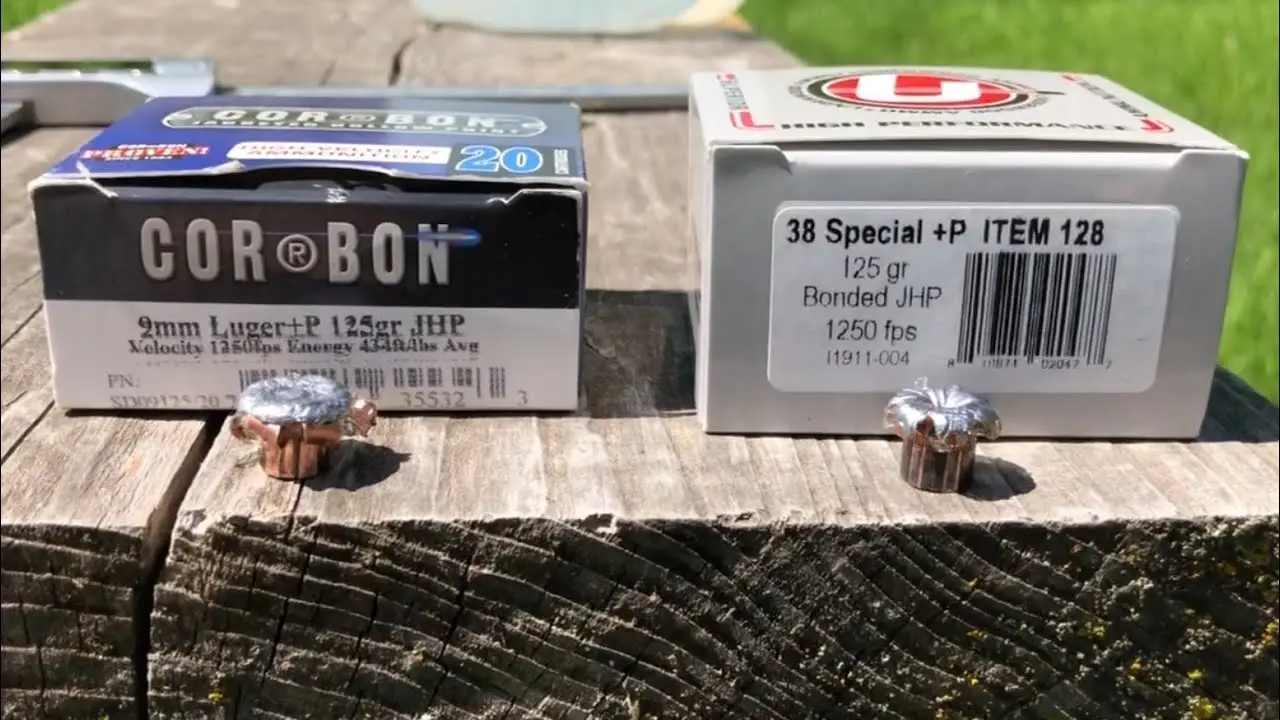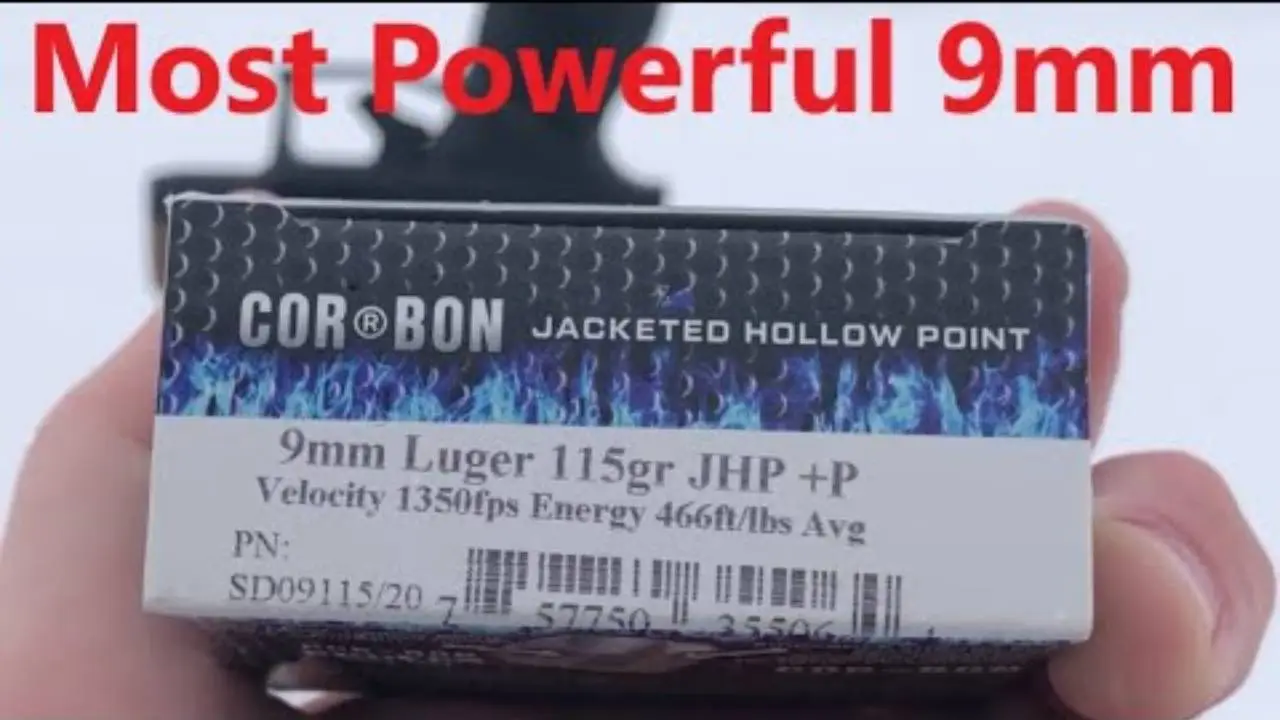Introduction
The CorBon DPX 95-grain +P 9mm is a lightweight solid-copper hollow point created to recover lost velocity in short-barrel handguns. It is built for compact carry guns that often struggle to achieve full expansion due to lower speeds. This review examines its penetration, expansion, and consistency using calibrated ballistic gel and denim barriers. The goal is to see how the 95-grain DPX compares with heavier versions such as the 115-grain DPX.
Why Choose a 95-Grain Bullet for Pocket Pistols?
Compact pistols used for daily concealed carry often lose velocity compared to full-size guns. CorBon’s design philosophy with the 95-grain DPX is simple — increase speed by using a lighter bullet. The faster the bullet travels, the better chance it has to expand properly, even from a short barrel.
Heavier bullets, such as the 115-, 124-, and 147-grain options, carry more momentum but may expand less effectively when fired from shorter barrels. The 95-grain DPX aims to close that gap by boosting speed, though it sacrifices a bit of mass and potential depth in return. This tradeoff makes real-world testing essential.
Test Setup and Methodology
Testing was done using a 3-inch barrel pocket pistol and calibrated ballistic gel. Two setups were used — one with bare gel to show raw penetration and another with heavy denim to simulate clothing barriers. Each round was measured for penetration depth, expansion, and consistency. Every bullet was also examined for petal shape, deformation, and overall performance after impact.
Ballistic Gel Results (Bare Gel)
In bare gel, the CorBon DPX 95-grain performed very consistently. Most rounds penetrated just over 12 inches, meeting the FBI’s recommended minimum for self-defense ammo. Recorded depths were 11.5, 12.25, and 12.5 inches, with an overall average of about 12.1 inches.
One round stopped slightly short at 11.5 inches, but the difference was minor. The group showed reliable performance for such a lightweight bullet fired from a short barrel.
Denim Barrier Performance
The 95-grain DPX handled the denim barrier test extremely well. Every round expanded properly and penetrated between 12 and 13.25 inches, averaging around 12.6 inches.
Although some bullets contained bits of denim in their cavities, none clogged or failed to expand. This consistency proves the hollow point design works even when facing common real-world barriers like layered clothing. Expansion remained even across all samples.
Expansion and Recovery Observations
Recovered bullets displayed perfect expansion. Each petal folded back evenly, a sign of high velocity and strong impact energy. The solid-copper design kept the bullet intact with no core separation or fragmentation.
When compared to the 115-grain DPX, the 95-grain version expanded slightly less. The lighter bullet’s faster speed caused its petals to fold back farther, creating a smaller expanded diameter. Meanwhile, the 115-grain version, with its added mass, maintained a wider final shape and slightly deeper penetration.
This comparison highlights a key tradeoff: the 95-grain DPX expands faster, but the 115-grain retains more size and momentum after expansion.
Velocity and Energy
From the 3-inch barrel, the 95-grain DPX reached speeds above 1,300 feet per second. That velocity ensures strong energy transfer and rapid expansion at typical defensive distances.
However, because it is a lighter bullet, it slows down faster than heavier loads. Even so, its initial speed and energy make it an effective option for short-range personal defense, where quick expansion and immediate energy delivery are most important.
Comparing the 95-Grain to Heavier Alternatives
The 95-grain DPX succeeds in its mission to restore velocity in short barrels while keeping expansion reliable and consistent. Still, heavier bullets like the 115-grain DPX offer slightly deeper penetration and larger expanded diameters.
Shooters who prefer more tissue disruption and deeper wound paths may favor the 115-grain round. Those who value speed, quick expansion, and lighter recoil from compact handguns may find the 95-grain DPX more appealing. Both deliver excellent performance, but each suits different carry preferences.
Final Assessment
The CorBon DPX 95-grain +P 9mm is a well-balanced round designed specifically for compact pistols. It penetrates between 12 and 13 inches, expands reliably through heavy denim, and maintains over 1,300 fps velocity — impressive for such a light bullet.
While it doesn’t outperform the 115-grain DPX in overall size and depth, it offers an excellent balance of speed and expansion. For subcompact carry guns, this balance can make a real difference in performance.
For concealed carriers who prioritize velocity and consistent expansion from short barrels, the CorBon DPX 95-grain +P remains a strong, dependable choice. Shooters seeking maximum depth and larger expansion may prefer the heavier 115-grain version. Either way, CorBon’s DPX line continues to prove itself as one of the most reliable copper hollow points on the market.

John Doe
Lorem ipsum dolor sit amet consectetur adipiscing elit dolor

